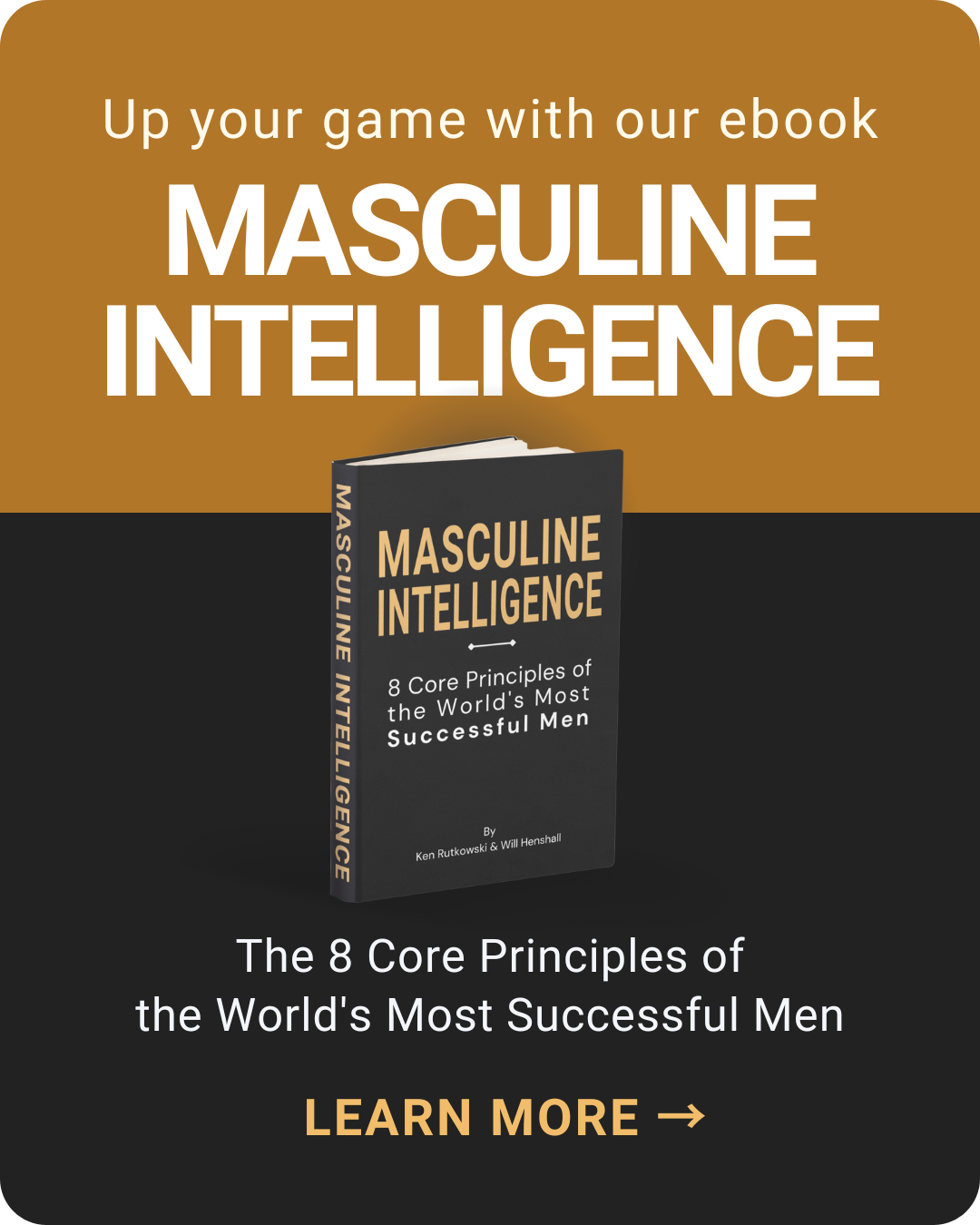
Some leaders are gifted with volcanic creative generativity, some with blistering analytical precision.
Nic Peterson’s ability to fiercely focus on his highest goals moved him from sleeping on friends’ couches to $156 million dollars of liquid assets at one point, and a loyal group of friends and students.
He is quiet, seemingly humble, a little mysterious, and says little to glorify himself. But point by point, his pared-down philosophy of abundance increasingly appears suspiciously effective.

It begins with the power of discipline, outlined in his short book, Bumpers.
Bumpers – as in those little helpers alongside a bowling lane – describes a life philosophy advising how to achieve abundance by staying focused, eliminating distractions, and consistently aligning your words with your actions with your core values.
SETTING UP YOUR BUMPERS
“First, you deem what’s most important to you,” Nic says. “From there, purpose emerges, and purpose – the way I’m using it here – is something like abundance, or flow state. It's that infinite energy to keep doing what you're doing and keep helping who you're helping.”
Watch Nic Peterson at METAL
This framework, he explains, “gives everything a frequency, an intensity. Whatever you do, you do it over and over and over, and then you start saying, ‘huh, this is kind of more my personality.’ You do it, you test it against the control of what you've been doing. And from there you find you tap into something you couldn't have conceived of before.”
For Nic, focus is more about identity than about mere mastery.
“By putting up these bumpers, you get into a unique – and very personal – space. Sometimes, like when I’ve hired a bunch of coaches or joined a bunch of groups, I don't even remember who I am. You can lose sight of who you are, what your highest priorities are and how you do things. If I find myself drifting that way, I use my bumpers to come back to my core frequency. I sit down and do the work, rediscover and reconfirm my style - and that’s where abundance always comes from.”

Olympian and METAL member Dr. Jeff Spencer has influenced Nic’s thinking on coming back to core.
“Jeff and I look for emergent properties. Things that emerge out of something else entirely. If we can spot an emergent property, we go back and inspect where it emerged from. It’s a kind of a shortcut for me to get back into this state of abundance or exponential growth.”
This metaphor of keeping the ball in the center of the lane drives everything Nic does, personally, physically and professionally. There’s no magic, no mysticism, nothing fancy. You can feel the stripped down way he thinks by pulling some of his principles from Bumpers. Here are a few…
- "Bumpers allow you to play 'all in' with 100% effort while keeping you out of the gutter."
- "Bumpers are not about restrictions but about staying focused on what truly matters."
- "Success is not about doing more; it’s about doing more of what works."
- "Every choice you make either brings you closer to or further away from your goals."
- "You don’t need more time; you need more focus."
- "True freedom comes from the discipline to stay within your bumpers."
- "Your bumpers are the boundaries that keep you aligned with your highest priorities."
WHO SETS THE BUMPERS?
You do.
Self-empowerment and self-discipline drive Nic’s thinking.
“It's a tough thing to realize that it isn't the world that’s broken,” he says. “But rather that I'm broken. That’s step one.
Then, step two is to be able to consider that we have significantly more options and more power over outcomes.

Mostly what I do for people is hold up a mirror and then help them understand that they themselves are the source of power. We may not be able to control all the variables of life, but we've got to identify the variables that are within our control. Once we do that, we can start tweaking them a little bit.”
The mistake so many people make, particularly when it comes to leadership, he continues, is that they think windows are in front of them. “You’re always looking in a mirror but you think it's a window. You're pointing at everybody out there. But I believe the great leader is the one who says, “I know I’m pissed off but everything I think is out there in that window is actually right before me in this mirror.”
A true leader says “yey, look, sure, they're doing some stuff wrong over there, and that's messed up. But I have a role in this, too.”
By contrast, poor leaders seek first to maintain their authority and insist, “no, no, that's a window!” Rather than focus on efficacy and creating solutions, they perpetuate an us versus them polarization.
FALL INTO THE GAP - THEN CLOSE IT
“My definition of intelligence,” Nic says in his plain-speak manner, “is the ability to get what you want. Anything that increases your ability to get what you want has made you more intelligent, in my opinion.”
And intelligent people close the gap between what they learn and what they do. But there are further behavioral gaps that (unintelligently) keep people in scarcity.
“There's a gap between what you're doing and what you need to do, or between what you say you want and what you say you want. I call that the intention/intervention gap. If, for example, you go to an event and you learn more shit you're supposed to be doing, and your behavior doesn’t change, that gap grows. What you get instead is anxiety and powerlessness. The more this gap grows, the more reality fails to meet expectations. And that's where we spin out of control and feel broken. People go, “I thought this would happen, but this other thing happened, and I don't understand why. Therefore I don't trust myself. I don't trust other people.”

Nic believes that if people paid more attention not to what they are supposed to do, but to the gap between that and what they are actually doing, they would move forward faster.
For example, he explains, “say I want to spend more time with my kids, but I keep taking these time consuming business deals. They force me to spend less time with my kids. So there's your gap. If we can dispassionately identify that gap and close it, which seems pretty obvious, then we have a tight feedback loop.”
In his Guardian Academy, he guides his members to be rigorous in closing these kinds of gaps.
“I use nutrition as an example. Most people will write down their nutrition plan, or they download it from the Internet and they do maybe 70% of it and don't get results. And they go. This plan doesn't work. So they swap out a new plan and they make the mistake of thinking they're gauging the efficacy of the plan. But they're not. They're gauging the efficacy of their behavior.
This is where we have to get rigorous with what we say our highest priorities are. “Maybe you don't actually want to spend more time with your kids. I don’t judge. It may be easier to just be honest about what you want, and then you can make progress from there.”
Written by Adam Gilad
Trending Now
China’s Huawei Reportedly Develops an Advanced AI Chip to Rival Nvidia: Chinese technology behemoth Huawei has developed an advanced AI chip, the "Ascend 910C," slated for release in October. Major corporations such as ByteDance, the parent company of TikTok, search engine giant Baidu, and telecommunications leader China Mobile are negotiating to purchase this chip. The anticipated orders are projected to surpass 70,000 units, amounting to a total value of $2 billion. (Robinhood)
Apple Will Let Other Digital Wallets into Apple Pay, and Even be the Default: Apple will let apps offer NFC functionality through the Secure Element on iOS devices starting with iOS 18.1. Developers will have to pay fees to access payments and secure transactions. By double-clicking the side button, iPhone users will be able to set the default payment app. (Arstechnica)
Cigarette Smoking Rate in U.S. Ties 80-Year Low: Cigarette smoking in the U.S. has reached a historic low, as evidenced by Gallup's eight decades of data. Presently, 11% of U.S. adults report smoking cigarettes in the past week, equaling the record low set in 2022 and closely followed by 12% in 2023. Back in 1944, when Gallup initially surveyed cigarette smoking, 41% of U.S. adults reported being smokers. (Gallup)



